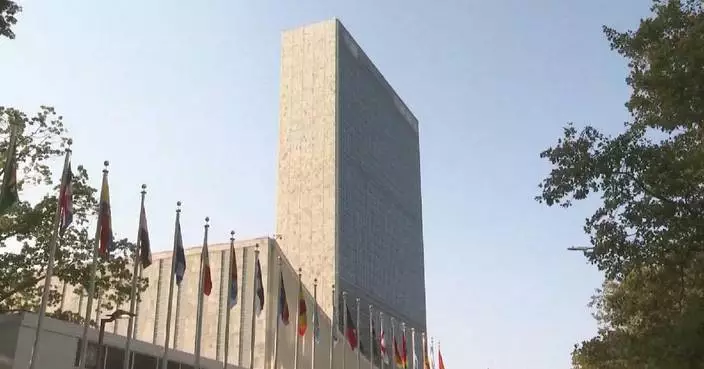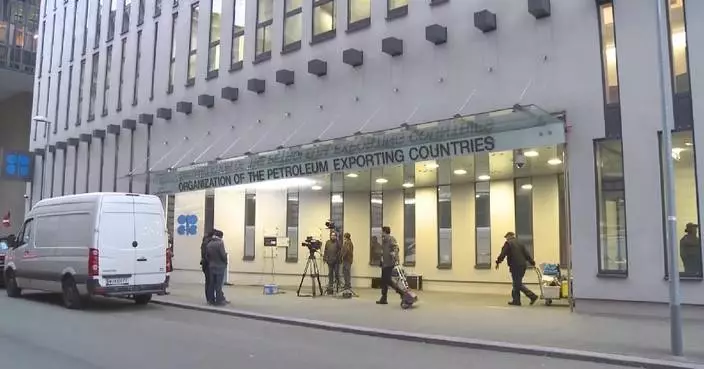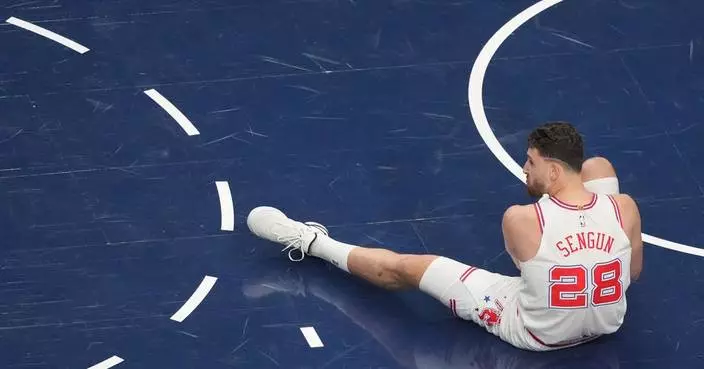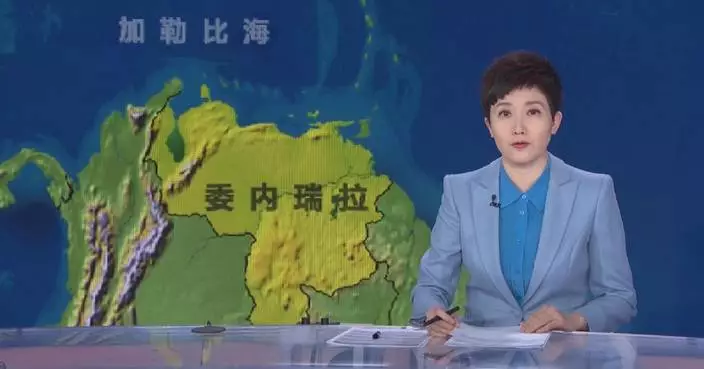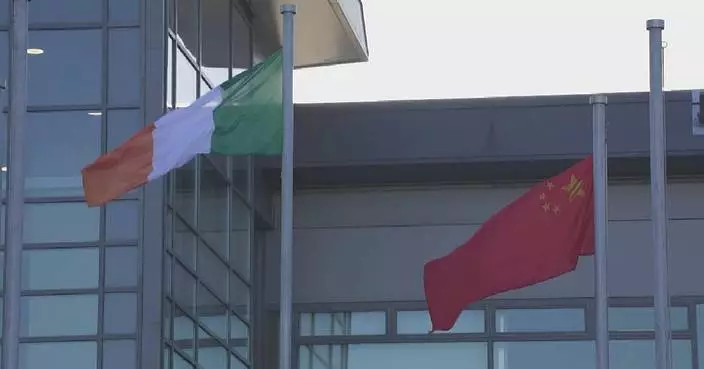Feature · News
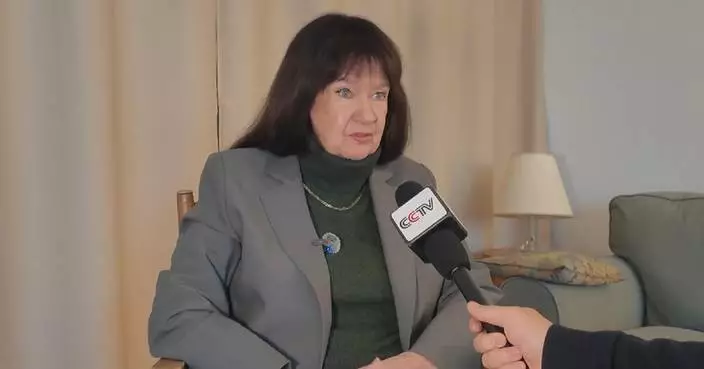
German, Venezuelan experts condemn US military strike on Venezuela

ROK president reiterates firm adherence to one-China principle

Multiple countries condemn US military attacks, capture of Maduro

Caracas resident voices fear as US strikes spark uncertainty in Venezuela
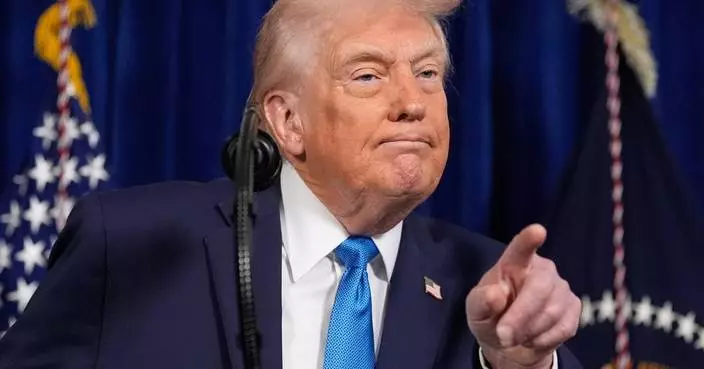
How the Monroe Doctrine factors into US arrest of Venezuela's Nicolás Maduro

US lawmakers criticize raid on Venezuela, capture of Maduro

Colombia secures border as US military operation captures Maduro in neighboring Venezuela
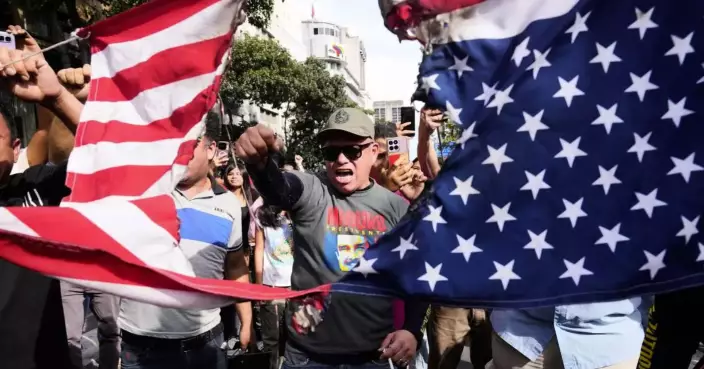
Photos show people reacting to the US capture of Venezuelan President Nicolas Maduro
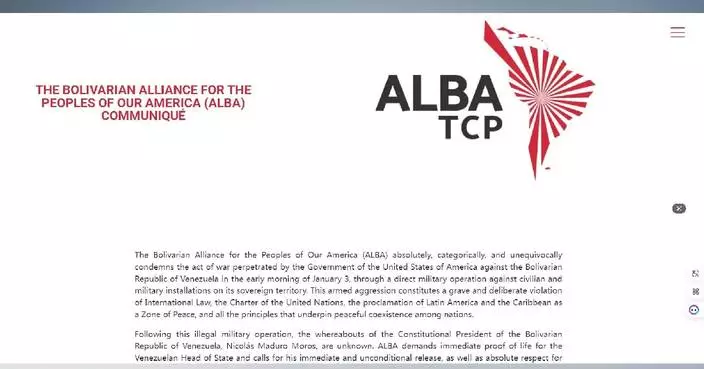
Iran, LatAm bloc condemn U.S. attack on Venezuela
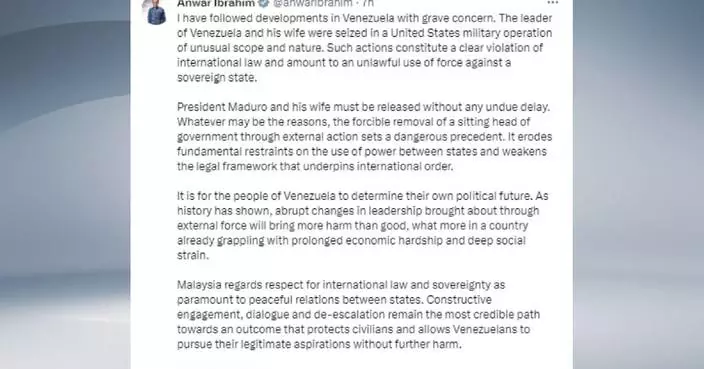
Malaysian PM, German Vice Chancellor express concern following U.S. attack on Venezuela

Global Youth Multicultural Forum Highlights Xizang Culture in Singapore and Malaysia

Nia Therapeutics Publishes Peer-Reviewed Validation of a 60-Channel Brain Implant for Closed-Loop Neurostimulation
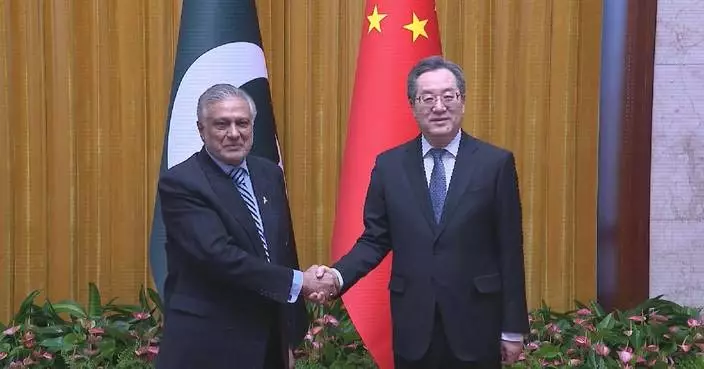
Chinese vice premier calls for closer China-Pakistan community with shared future

Supercomputing sparks AI innovation

Observers say Takaichi's remarks prepare Japan for war
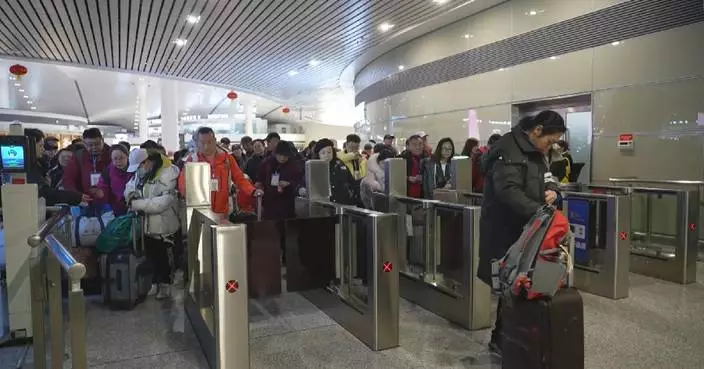
Railways handle record passenger trips in 2025
Colombia secures border as US military operation captures Maduro in neighboring Venezuela

Photos show people reacting to the US capture of Venezuelan President Nicolas Maduro
Iran, LatAm bloc condemn U.S. attack on Venezuela
Malaysian PM, German Vice Chancellor express concern following U.S. attack on Venezuela
German, Venezuelan experts condemn US military strike on Venezuela
ROK president reiterates firm adherence to one-China principle
Multiple countries condemn US military attacks, capture of Maduro
Caracas resident voices fear as US strikes spark uncertainty in Venezuela

How the Monroe Doctrine factors into US arrest of Venezuela's Nicolás Maduro
US lawmakers criticize raid on Venezuela, capture of Maduro

Global Youth Multicultural Forum Highlights Xizang Culture in Singapore and Malaysia

Nia Therapeutics Publishes Peer-Reviewed Validation of a 60-Channel Brain Implant for Closed-Loop Neurostimulation
Chinese vice premier calls for closer China-Pakistan community with shared future
Supercomputing sparks AI innovation
Observers say Takaichi's remarks prepare Japan for war
Railways handle record passenger trips in 2025
Feature·Bloggers

The Most Laughable Lie of the New Year: Jimmy Lai's "Grave Illness" Falls Apart Under Five Hard Facts

【What Say You?】Black Riots “comrades” Thought Ukraine Was Another “Resistance”—Then the Contract Hit

【Bastille Commentary】Green Nails? The Lie No Lawyer Would Touch

【What Say You?】How Jimmy Lai's Right-Hand Man Ran a Corporate Shakedown Operation

【Deep Blue】Trump's "Empire Strikes Back" Gambit: A Long Shot at Best

【What Say You?】Unfinished business With the “anti-Hong Kong triangle”?

Bluefin tuna sells for record $3.2 million at year-opening auction at Tokyo fish market
- After Maduro, who's next? Trump's comments spur anxieties about his plans for Greenland and Cuba
- The Latest: Rubio suggests US won't run Venezuela day-to-day
- Cuba says 32 Cuban officers were killed in US action in Venezuela
- Surprise interim leader Delcy Rodriguez emerges in Venezuela after Maduro’s capture
- Trump says that Ukraine didn't target Putin residence in a drone strike as Kremlin claims
- Trump's plan to seize and revitalize Venezuela's oil industry faces major hurdles
- Rubio says US won’t govern Venezuela but will press for changes through oil blockade
- Photos show people in Lebanon enjoying winter weather on the slopes
- US intervention in Venezuela could test Trump's ability to hold GOP together in an election year

US cannot legitimize operation against Venezuela: Chinese scholar
- South Koreans hope president’s first visit to China will enhance exchanges
- Chinese FM holds strategic talks with Pakistani counterpart
- China's daily passenger trips up nearly 20 pct during New Year holiday
- Venezuelan acting president urges sovereignty defense against US takeover threat
- HK financial secretary hails investor confidence amid IPO market boom in 2025
- First direct air route between Xiamen, Busan launched
- Irish businesses expect PM's China visit to expand market access
- 2026 "Shopping in China" campaign to focus on consumption on goods, services
- International Chinese Mathematicians Congress awards talents

Hyundai Motor Group Executive Chair Chung Presents 2026 Vision: Customer-Focused Transformation and AI-Driven Ecosystem Collaboration
- Hong Kong Life Sciences Scholarship Awards: Sowing Today, Cultivating Future Leaders Tomorrow
- LG ELECTRONICS PRESENTS LG CLOiD HOME ROBOT TO DEMONSTRATE "ZERO LABOR HOME" AT CES 2026
- Hollywood starts 2026 with 'Avatar: Fire and Ash' No. 1, as James Cameron's sci-fi epic crosses $1B
- Sports and Tourism Merge in Sanya as 2025 Marathon Wraps Up Along Scenic Coast
- Resecurity and D4DS Partner to Accelerate Advanced Cybersecurity Capabilities in Saudi Arabia
- Dreame Showcases the Future of Wet & Dry Vacuum Cleaning at CES 2026
- HOTLIST 2025 "From Seed to Harvest": A Story of Resilience and Transformation
- Fans mourn closure of cupcake vending machine company Sprinkles Cupcakes
- Wall Street edges higher in a wobbly start to 2026

Why home maintenance deserves a spot in the annual health and budget plans
- Why ordering takeout or calling the dog walker might lead to a happier relationship
- Big Tech's fast-expanding plans for data centers are running into stiff community opposition
- Tesla loses title as world's biggest electric vehicle maker as sales fall for second year in a row
- If someone's always late, is it time blindness, or are they just being rude?
- Flu is rising rapidly, driven by a new variant. Here's what to know
- Meta buys startup Manus in latest move to advance its artificial intelligence efforts
- The year's first meteor shower and supermoon clash in January skies
- What's inside Mexico's Popocatépetl volcano? Scientists obtain first 3D images
- 2025 was one of three hottest years on record, scientists say

Popular South Korean movie star Ahn Sung-ki, dubbed 'The Nation's Actor,' dies at 74
- Leonardo DiCaprio on the importance of creating cinema over content at Palm Springs Film Festival
- In a frozen northeastern Chinese city, an annual ode to ice rises
- What to know about Carnival season, Louisiana's biggest celebration
- BTS announces March comeback date, putting an end to a nearly four-year hiatus
- Country singer Zach Bryan has married Samantha Leonard
- Broadway director Alex Timbers achieves a rare feat with 4 shows running simultaneously
- Rain soaks Rose Parade in California and snow squalls hit Midwest and Northeast on first day of 2026
- Bad Bunny's 'Debí Tirar Más Fotos' could make Grammy history
- Greece and Cyprus are welcoming 2026 without the bang

Bills fans brave snow, cold to celebrate final regular-season game at 53-year-old Highmark Stadium
- Lions beat playoff-bound Bears 19-16 on Bates' 42-yard field goal as time expires
- Falcons fire coach Raheem Morris, GM Terry Fontenot hours after finishing 8-9 season
- Stafford throws 4 more touchdown passes, and Rams beat Cardinals 37-20 to secure No. 5 NFC seed
- Eagles’ backup plan backfires with 24-17 loss to Commanders that costs them shot at NFC's No. 2 seed
- Bills celebrate home finale with 35-8 rout of the Jets in potential final game at Highmark Stadium
- Daniel Carlson hits 60-yard field goal to lift Raiders over Chiefs, 14-12
- Sweden outlasts Finland 4-3 in shootout to reach world junior hockey final
- Powell makes career-high nine 3-pointers as Heat beat Pelicans 125-106
- Gabriel Landeskog injured in Avalanche's game against Florida. He'll miss some time, the team says

No New Chikungunya Fever Cases Reported in Hong Kong, Mosquito Control Measures Intensified
- The Fire at Mei Yue House of Shek Kip Mei Estate Caused 1 Death and 8 Injuries
- The Security Bureau Reminds Hong Kong Residents in Venezuela to be Vigilant about Their Safety
- "Wild Twister" in Ocean Park Malfunctioned Again after Four Months, Causing 15 People to be Trapped for 19 Minutes
- Hong Kong Government Launches $3 Billion AI Subsidy Scheme to Boost Innovation and Research
- Flu Activity Declines in Hong Kong; Public Urged to Stay Vigilant and Get Vaccinated
- Over the Past Week, More than 230 Online Shopping Fraud Cases Occurred, with Losses Exceeding 5.7 Million HKD
- Hong Kong Reports No New Chikungunya Fever Cases Amid Ongoing Mosquito Control Efforts
- A Miracle Happened One Month After the Tai Po Fire: A Surviving Pet Cat Has Been Found!
- A 32-year-old Female Customer Brandished a Kitchen Knife to Intimidate Staff at a Noodle Restaurant in Sheung Shui

Railway fixed asset investment tops 900 billion yuan in 2025
- China's low-altitude equipment sector grows fast during 2021-2025
- Railway freight volume grows for nine consecutive years
- China aims to build world-class railway network by 2030
- OPEC to face upheaval in oil sector should Venezuela face change of government
- Giant pandas in Haikou celebrate new year with special feast
- Venezuela's supreme court orders VP Delcy Rodriguez to serve as acting president
- ROK tourists in China praise visa-free policy
- PLA Rocket Force, Joint Logistics Support Force, Armed Police start annual training for 2026
- PLA Army, Navy, Air Force start annual training for 2026
Category · News

Bills fans brave snow, cold to celebrate final regular-season game at 53-year-old Highmark Stadium

Bluefin tuna sells for record $3.2 million at year-opening auction at Tokyo fish market

After Maduro, who's next? Trump's comments spur anxieties about his plans for Greenland and Cuba

The Latest: Rubio suggests US won't run Venezuela day-to-day

Lions beat playoff-bound Bears 19-16 on Bates' 42-yard field goal as time expires

Falcons fire coach Raheem Morris, GM Terry Fontenot hours after finishing 8-9 season
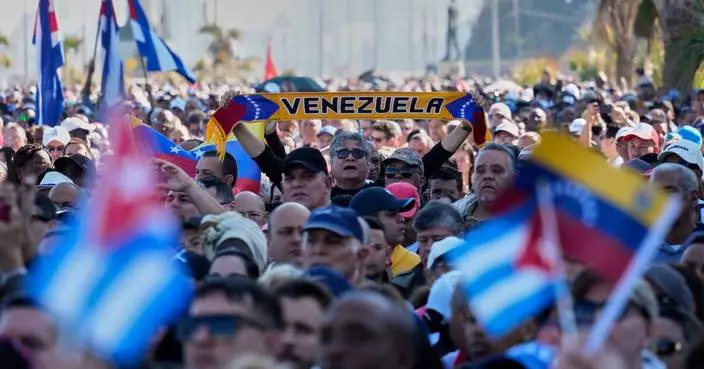
Cuba says 32 Cuban officers were killed in US action in Venezuela

Stafford throws 4 more touchdown passes, and Rams beat Cardinals 37-20 to secure No. 5 NFC seed

Eagles’ backup plan backfires with 24-17 loss to Commanders that costs them shot at NFC's No. 2 seed

Bills celebrate home finale with 35-8 rout of the Jets in potential final game at Highmark Stadium

Surprise interim leader Delcy Rodriguez emerges in Venezuela after Maduro’s capture

Trump says that Ukraine didn't target Putin residence in a drone strike as Kremlin claims

Trump's plan to seize and revitalize Venezuela's oil industry faces major hurdles

Rubio says US won’t govern Venezuela but will press for changes through oil blockade

Daniel Carlson hits 60-yard field goal to lift Raiders over Chiefs, 14-12

Sweden outlasts Finland 4-3 in shootout to reach world junior hockey final

Powell makes career-high nine 3-pointers as Heat beat Pelicans 125-106

Photos show people in Lebanon enjoying winter weather on the slopes

US intervention in Venezuela could test Trump's ability to hold GOP together in an election year

Gabriel Landeskog injured in Avalanche's game against Florida. He'll miss some time, the team says

Rhamondre Stevenson scores 3 TDs and playoff-bound Patriots beat Dolphins 38-10

North Korea says latest missile tests involve hypersonic weapons system

Colts planning to bring back Chris Ballard and Shane Steichen for next season despite collapse

Tkachuk on Panthers' trip: Will he play? His season debut after August surgery may be looming

Popular South Korean movie star Ahn Sung-ki, dubbed 'The Nation's Actor,' dies at 74

Maduro’s case will revive a legal debate over immunity for foreign leaders tested in Noriega trial

Hyundai Motor Group Executive Chair Chung Presents 2026 Vision: Customer-Focused Transformation and AI-Driven Ecosystem Collaboration

Panthers win the NFC South. Broncos clinch AFC's No. 1 seed. Jaguars secure the AFC South

Hong Kong Life Sciences Scholarship Awards: Sowing Today, Cultivating Future Leaders Tomorrow

Garrett sets sacks record and Szmyt's field goal on last play gives Browns 20-18 win over Bengals

Streaking Jaguars clinch AFC South title with a 41-7 drubbing of Titans

Dave Canales and the Panthers celebrate Falcons' win that gave Carolina the NFC South title

McCarthy gives Vikings another mixed-bag performance in season finale, including another injury exit

Vikings cruise past resting Packers 16-3 for 5th straight win as McCarthy exits again with injury

Myles Garrett breaks NFL single-season sack record with 23 and laments not getting 2 more

Aaron Gordon, Christian Braun return to a Nuggets team needing healthy bodies after Jokic's loss

No. 1 Indiana starts post-Mendoza era with new former TCU quarterback, new receiver, AP source says

Infielder Kazuma Okamoto and Blue Jays finalize $60 million, 4-year contract

Michael Porter Jr. scores 27 points against his old team as the Nets beat the Nuggets 127-115
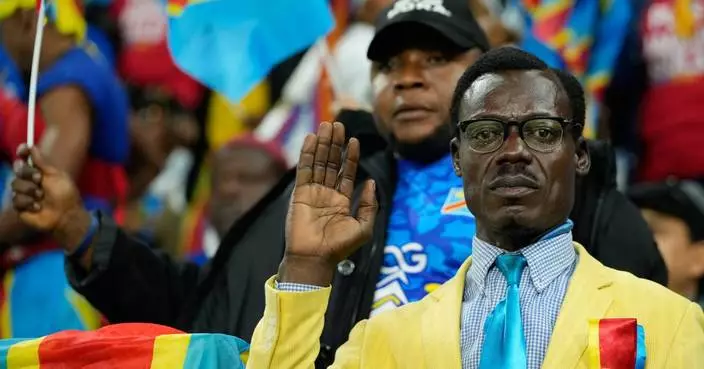
Statuesque Congo fan 'Lumumba' stands above all others at Africa Cup

Saints QB Tyler Shough concludes his solid rookie year with a late pick and a loss

Flames’ Beecher, Jets’ Stanley suspended 1 game each for roughing

Marie-Philip Poulin scores twice as Victoire rally to beat the Frost 3-2 in overtime

'Still shaken': Trepidation in Venezuela after US captures Maduro

Titans rookie QB Cam Ward to have more tests on his injured throwing shoulder

Hutson's first career OT goal gives Canadiens 4-3 win over struggling Stars

Alford's red-zone pick saves Falcons' 19-17 win over Saints, giving NFC South title to Panthers

Vikings get Justin Jefferson past the 1,000-yard mark in the final game of a trying season
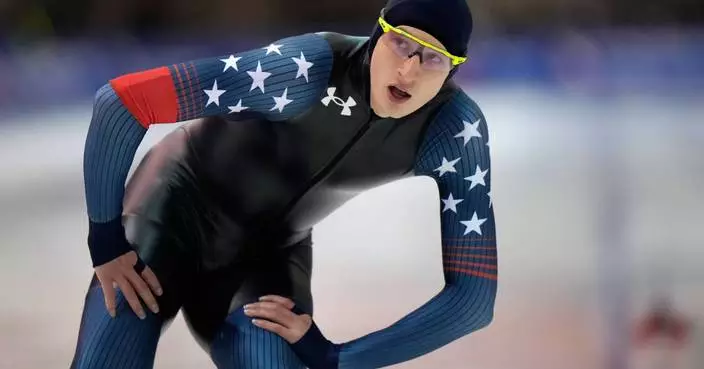
Jordan Stolz starts but doesn't race the 1,500 after being fastest at 500 at the US Olympic trials

Bane, Banchero help Magic hand Pacers 12th straight loss, 135-127

PSG beats PFC 2-1 in Paris derby after Marseille loses at home

Texans win 38-30 over Colts, clinch No. 5 seed in AFC playoffs

With Mbappé injured, Real Madrid forward Gonzalo García impresses with a hat trick

Cowboys defensive coordinator Matt Eberflus' unit ends season on a rough note with loss to Giants

Giants owner John Mara gets a game ball after 34-17 victory over Cowboys 34-17 in season finale

Brahim Díaz fires Morocco into the Africa Cup of Nations quarterfinals where Cameroon awaits

Novak Djokovic cuts ties with the PTPA players' association he co-founded

Napoli triumphs over Lazio but match ends in chaos with three red cards. Inter top of Serie A

Cade Cunningham scores 27, Daniss Jenkins 25 as East-leading Pistons hold off Cavaliers 114-110

Photos of Venezuela the day after US forces captured President Nicolás Maduro
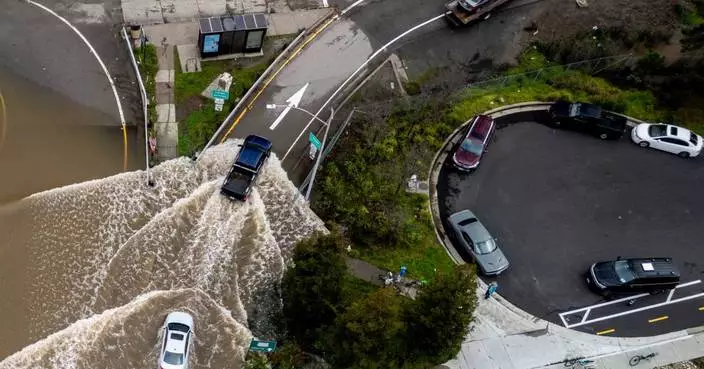
Rain continues in parts of California reeling from flooding and high tides

Plaud Unveils Plaud NotePin S and Plaud Desktop, at CES, the Only Note-Taking Solution That Seamlessly Bridges In-Person and Online Conversations

San Jose Sharks sign Alexander Wennberg to a three-year, $18M contract extension

Liverpool and Man City stunned by late goals. Amorim raises questions over his role at Man United

Top photos from Week 18 of the NFL season
US cannot legitimize operation against Venezuela: Chinese scholar

Hundreds march in silence to honor victims of Swiss bar fire that left 40 dead

Infielder Paul DeJong and New York Yankees agree to minor league contract, AP source says

Leonardo DiCaprio on the importance of creating cinema over content at Palm Springs Film Festival

As Hurricanes navigate the CFP challenge, the echoes from the past tend to inspire

Man United boss Ruben Amorim delivers puzzling and defiant message after Leeds draw

LG ELECTRONICS PRESENTS LG CLOiD HOME ROBOT TO DEMONSTRATE "ZERO LABOR HOME" AT CES 2026

Hollywood starts 2026 with 'Avatar: Fire and Ash' No. 1, as James Cameron's sci-fi epic crosses $1B
South Koreans hope president’s first visit to China will enhance exchanges
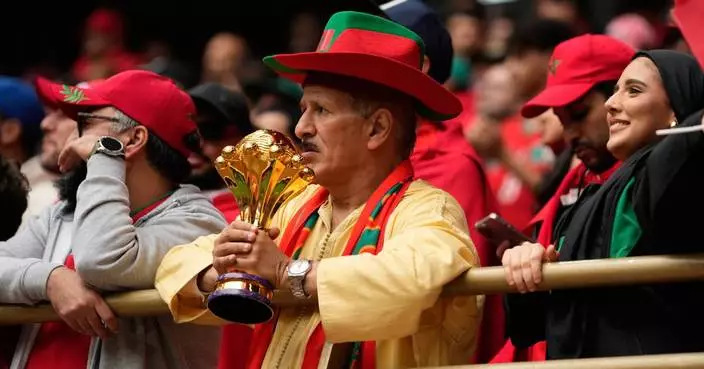
Decision to switch Africa Cup to 4-year cycle rankles
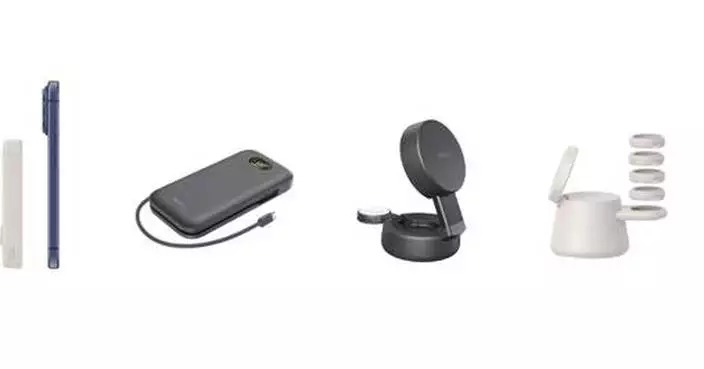
Belkin Unveils Next-Generation Chargers, Gaming Power Accessories and More at CES 2026

Drone strikes kill 2 in Russian border regions ahead of Ukraine peace talks

As Olympics loom, Summer Britcher wins another World Cup gold for USA Luge

Berlin power outage affecting 45,000 homes blamed on ‘politically motivated’ attack
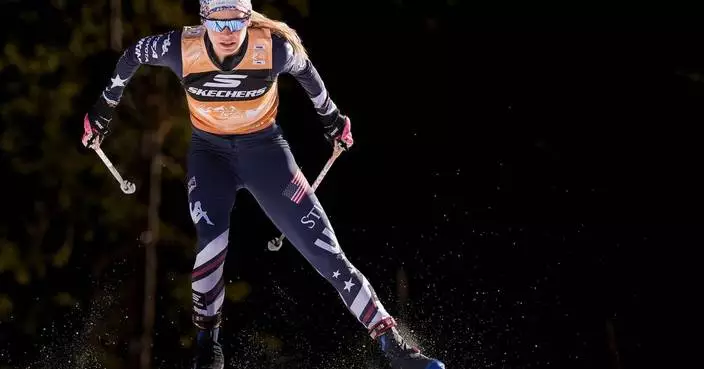
American Jessie Diggins wins her 3rd XC Tour de Ski title, Klaebo claims record 5th win

De Mévius wins Dakar Rally stage one with amputee Baumel

Anthony Joshua posts his first public update since the car crash that killed two of his friends

After capture and removal, Venezuela's Maduro is being held at notorious Brooklyn jail
Chinese FM holds strategic talks with Pakistani counterpart



